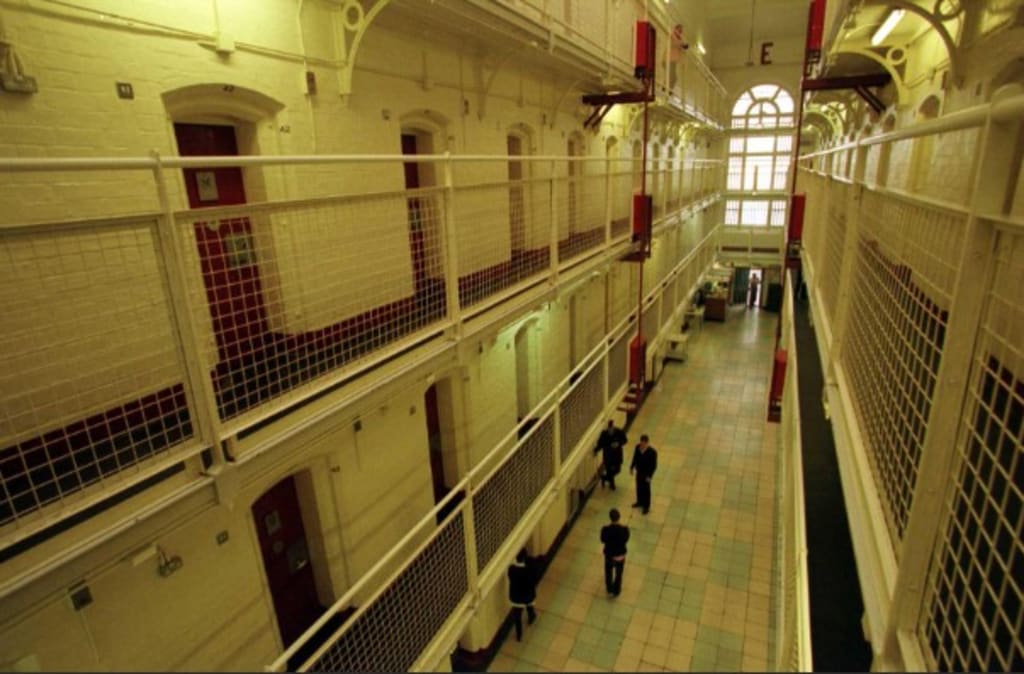The Cycle of Deprivation: How it Breeds Delinquency and Leads to Imprisonment
THE HAVE NOT TO PRISON

Introduction
Deprivation, often characterized by poverty, limited access to quality education, healthcare, and employment opportunities, is a complex social issue that affects individuals and communities worldwide. Unfortunately, deprivation has a profound impact on individuals, particularly young people, and can contribute to a path of delinquency and eventual imprisonment. This article aims to explore the relationship between deprivation and delinquency, highlighting the various factors that perpetuate this cycle. By understanding the underlying causes and addressing them proactively, societies can strive towards breaking this cycle and promoting rehabilitation and social integration.
The Link between Deprivation and Delinquency
Deprivation and delinquency share a complex and interconnected relationship. When individuals grow up in deprived environments, they often face a multitude of challenges that can lead them towards delinquent behaviour. Limited access to quality education and employment opportunities exacerbates feelings of hopelessness, frustration, and alienation. These individuals may lack positive role models or mentors who can guide them towards productive and law-abiding paths. Consequently, they may become susceptible to negative influences such as peer pressure, substance abuse, and involvement in criminal activities as a means of survival or rebellion.
Furthermore, deprivation can contribute to the breakdown of social cohesion within communities. When individuals and families struggle to meet their basic needs, it can result in heightened stress levels, increased domestic conflict, and strained relationships, which sometimes become the push factors. Such an environment often fails to provide the necessary support systems and structures that can protect and guide young individuals towards positive development. Consequently, delinquent behaviours may arise as a coping mechanism or to seek a sense of belonging and identity outside of their immediate surroundings.
The Impact of Deprivation on Youth
Youth living in deprived environments are particularly vulnerable to the cycle of delinquency and imprisonment. Lack of access to quality education hampers their academic progress and future prospects. As a result, they may feel marginalized, disillusioned, and disconnected from mainstream society. This disconnection can increase their susceptibility to engage in criminal activities, as they perceive limited alternatives or opportunities for upward mobility.
Moreover, deprivation often leads to a higher prevalence of substance abuse and mental health issues among young individuals. Coping with the challenges of poverty and limited resources can drive some towards drug addiction, which further contributes to their involvement in criminal behaviour. Mental health concerns, such as depression and anxiety, are also prevalent in deprived communities, with limited access to mental health support exacerbating these issues and potentially pushing individuals towards delinquency.
The Criminal Justice System and Recidivism
The impact of deprivation on delinquency becomes further pronounced within the criminal justice system. Individuals from deprived backgrounds are disproportionately represented in the prison population. The lack of educational and vocational opportunities, coupled with limited access to rehabilitative programs, makes it difficult for incarcerated individuals to break the cycle of delinquency upon release. This perpetuates a cycle of imprisonment, where individuals who have served their sentences often return to deprived environments, struggling to reintegrate into society, find stable employment, or access the necessary support to rebuild their lives.
Breaking the Cycle
Addressing the cycle of deprivation and its link to delinquency requires a multifaceted approach. Investing in quality education, particularly in deprived areas, can provide young individuals with the necessary skills, opportunities, and hope for a better future. By addressing educational inequalities and ensuring equal access to educational resources, society can equip young people with the tools they need to break free from the cycle of deprivation.
Additionally, providing comprehensive support systems within communities, such as mentoring programs in schools were the need of the young person can be met while they are still young, counselling services, and extracurricular





Comments
There are no comments for this story
Be the first to respond and start the conversation.